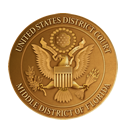- CLAIMS OF PRIVILEGE OR OTHER PROTECTION. A party who responds to or objects to discovery requests and who withholds information otherwise discoverable, asserting that the information is privileged or subject to other protection from discovery, must assert the claim expressly and must describe the nature of the documents, communications, or things not produced or disclosed, such that, without revealing the privileged or protected information itself, the description will enable other parties to assess the applicability of the privilege or protection. See Rule 26(b)(5), Federal Rules of Civil Procedure. Withholding materials without notice is contrary to Rule 26 and may result in sanctions. If a motion to compel is filed, the party asserting a protection generally has the obligation to establish by affidavit or other evidence, all facts essential to the establishment of the privilege or protection relied upon.
- PROCEDURE FOR INVOCATION OF PRIVILEGE OR OTHER PROTECTION AGAINST DISCOVERY DURING A DEPOSITION. Rule 30(d), Federal Rules of Civil Procedure, permits objection during a deposition but requires a concise statement of the objection. Argumentative and suggestive objections or responses are improper. Rule 30(c) allows a person to instruct a deponent not to answer if necessary to preserve a privilege or other protection against discovery. While Rule 30(c) provides certain protections, counsel should be mindful that abuse of these protections is sanctionable. Rule 33(d)(2), Federal Rules of Civil Procedure. If a claim of privilege or other protection against discovery is asserted during a deposition and information is not provided on the basis of such assertion:
- The attorney asserting the privilege or other protection shall identify during the deposition the nature of the privilege or other protection claimed and, if the privilege or protection is asserted in connection with a claim or defense governed by state law, shall specify the applicable state law.
- Unless doing so would result in disclosure of protected information, a deposed party asserting privilege or other protection must upon request of the deposing party provide:
- For documents, to the extent the information is readily obtainable from the witness being deposed or otherwise:
- A description of the document, e.g., letter or memorandum,
- Its date,
- The name, address and employer of the author(s) of the document, or the person giving, recording and/or transcribing a statement,
- Purpose for which the document was created and transmitted,
- Subject of the document,
- Persons to whom the document is addressed,
- Persons indicated thereon as having received copies,
- Name, address, job title and employer of any person known or believed to have received or seen the document or any copy or summary thereof,
- The relationship to each other of the author, addressee, and any other recipient,
- Degree of confidentiality with which it was treated at the time of its creation and transmission, and since,
- Other information sufficient to identify the document for a subpoena duces tecum, including, if available, Bates numbers assigned to the document, and
- Any other facts relevant to the elements of the particular privilege or protection asserted.
- A description of the document, e.g., letter or memorandum,
- For oral communications:
- The general subject matter of the communication,
- Its date,
- The place where the communication was made,
- The name, address and employer of the person making the communication,
- The name(s), address(es) and employer(s) of the person(s) present when the communication was made,
- The relationship to each other of the speaker and persons present, and
- Any other facts relevant to the elements of the particular privilege or protection asserted.
- The general subject matter of the communication,
- Objection on the ground of privilege or other protection asserted during a deposition may be amplified by the objecting party subsequent to the objection.
- For documents, to the extent the information is readily obtainable from the witness being deposed or otherwise:
- After a claim of privilege or other protection has been asserted, the attorney seeking disclosure shall have reasonable latitude during the deposition to question the witness to establish other relevant information concerning the assertion of the privilege or other protection, unless divulgence of such information would cause disclosure of privileged or other protected information, including:
- the applicability of the particular privilege or other protection being asserted,
- the circumstances which may constitute an exception to the assertion of the privilege or other protection,
- the circumstances which may result in the privilege or other protection having been waived, and
- the circumstances which may overcome a claim of qualified privilege or other protection.
- the applicability of the particular privilege or other protection being asserted,
- The attorney asserting the privilege or other protection shall identify during the deposition the nature of the privilege or other protection claimed and, if the privilege or protection is asserted in connection with a claim or defense governed by state law, shall specify the applicable state law.
